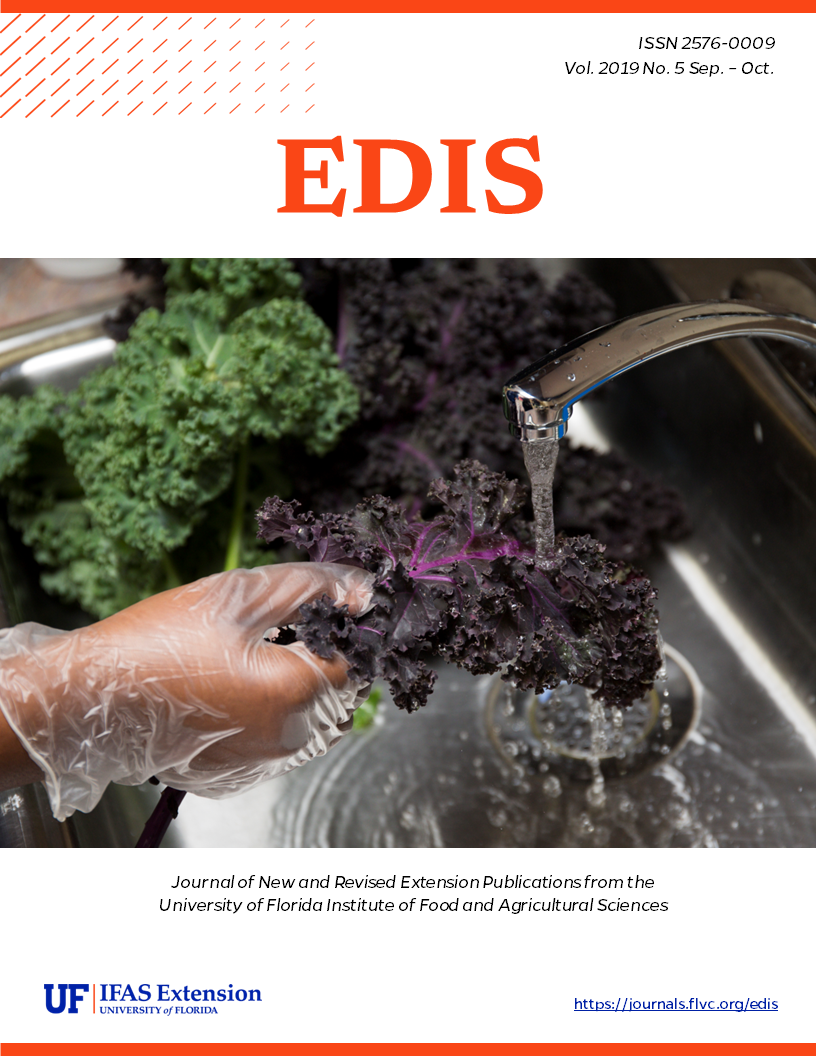Abstract
Also published as part of the Featured Creatures collection: http://entnemdept.ufl.edu/creatures/BENEFICIAL/LEPS/Caloptilia_triadicae.html
Tallow Leaf Roller (suggested common name) Caloptilia triadicae (Davis) (Insecta: Lepidoptera: Gracillariidae)
https://edis.ifas.ufl.edu/in1256
References
Davis DR, Fox MS, Hazen RF. 2013. Systematics and biology of Caloptilia triadicae (Lepidoptera: Gracillariidae), a new species of leaf-mining moth of the invasive Chinese tallow tree (Triadica sebifera (L.) Euphorbiaceae). Journal of the Lepidopterists' Society 67: 281-290. https://doi.org/10.18473/lepi.v67i4.a5
Dekle GW. 2010. Azalea Leafminer. Gainesville: University of Florida Institute of Food and Agricultural Sciences. EENY-379. http://entnemdept.ufl.edu/creatures/orn/shrubs/azalea_leafminer.htm. (14 October 2017)
Duncan JG, Steininger MS, Wright SA, Wheeler GS. 2016. "Host range of Caloptilia triadicae (Lepidoptera: Gracillariidae): An adventive herbivore of Chinese tallowtree (Malpighailes: Euphoriaceae)." Florida Entomologist 99: 142-145. https://doi.org/10.1653/024.099.0132
EDDMapS. 2017. Early Detection and Distribution Mapping System. The University of Georgia - Center for Invasive Species and Ecosystem Health. Available online at http://www.eddmaps.org/. (14 October 2017).
Esser H-J. 2002. A revision of the Triadica Lour. (Euphorbiaceae). Harvard Papers in Botany 7: 17-21.
Fox M, Hazen R, Wheeler GS, Davis DR. 2012. "Using Internet images to gather distributional data for a newly discovered Caloptilia species (Lepidoptera: Gracillariidae) specializing on Chinese tallow in North America." American Entomologist 58: 32-35. https://doi.org/10.1093/ae/58.1.0032
Heppner JB. 2016. Citrus leafminer. Gainesville: University of Florida Institute of Food and Agricultural Sciences. EENY-38. http://entnemdept.ufl.edu/creatures/citrus/citrus_leafminer.htm. (14 October 2017).
Pile LS, Wang GG, Stovall JP, Evan S, Wheeler GS, Gabler CA. 2017. Mechanisms of Chinese tallow (Triadica sebifera) invasion and their management implications - A review. Forest Ecology and Management 404: 1-13. https://doi.org/10.1016/j.foreco.2017.08.023
Rogers WE, Siemann E. 2004. "Invasive ecotypes tolerate herbivory more effectively than native ecotypes of the Chinese tallow tree Sapium sebiferum." Journal of Applied Ecology 41: 561-570. https://doi.org/10.1111/j.0021-8901.2004.00914.x
Rogers WE, Siemann E. 2005. "Herbivory tolerance and compensatory differences in native and invasive ecotypes of Chinese tallow tree (Sapium sebiferum)." Plant Ecology 181: 57-68. https://doi.org/10.1007/s11258-005-3029-6
Stelinkski LL. 2016. Citrus peelminer. Gainesville: University of Florida Institute of Food and Agricultural Sciences. EENY-415. http://entnemdept.ufl.edu/creatures/citrus/citrus_peelminer.htm. (14 October 2017).
Wheeler GS, Ding J. 2014. "Is Chinese tallowtree, Triadica sebifera, an appropriate target for biological control in the United States?" Invasive Plant Science and Management 7: 345-359. https://doi.org/10.1614/IPSM-D-13-00061.1
heeler GS, Dyer K, Hight SD, Wright SA. 2017a. "Seasonal abundance of the adventive Chinese tallowtree herbivore Caloptilia triadicae (Lepidoptera: Gracillariidae) and its parasitoids." Florida Entomologist 100: 52-56. https://doi.org/10.1653/024.100.0109
Wheeler GS, Hight SD, Wright SA. 2017b. "Impact of field densities of the naturalized defoliator Caloptilia triadicae (Lepidoptera: Gracillariidae) on the invasive weed Chinese tallowtree." Environmental Entomology 46: 1305-1312. https://doi.org/10.1093/ee/nvx148
Wunderlin RP, Hansen BF. 2011. Guide to the Vascular Plants of Florida. 3rd edition. 783 pp.
Unless otherwise specified, articles published in the EDIS journal after January 1, 2024 are licensed under a Creative Commons Attribution-NonCommercial-NoDerivs 4.0 International (CC BY-NC-ND 4.0) license.

